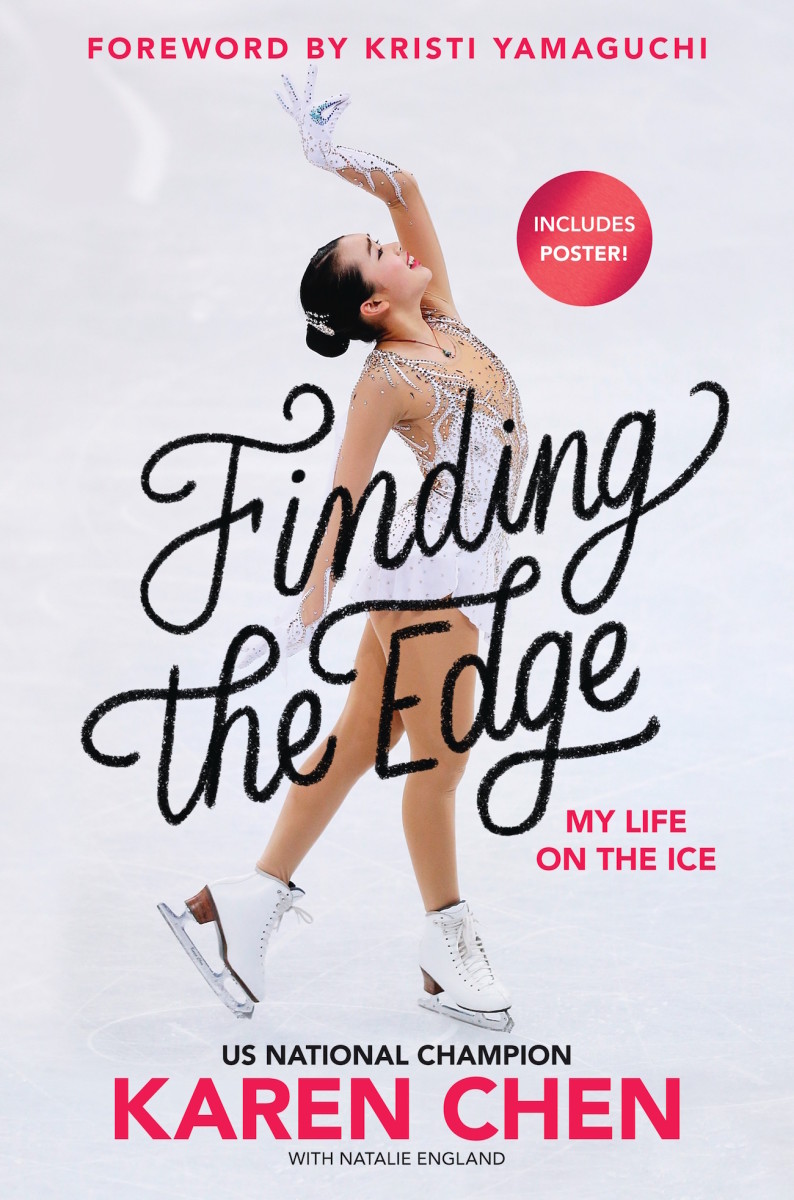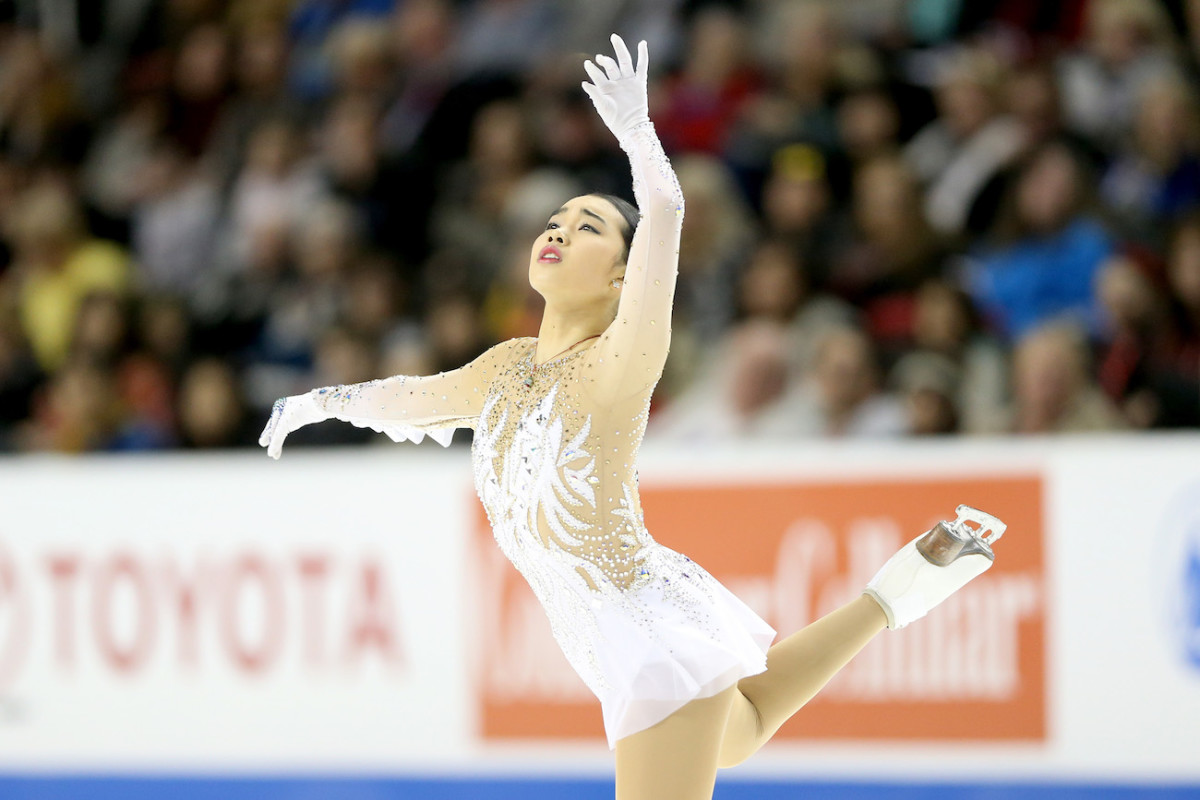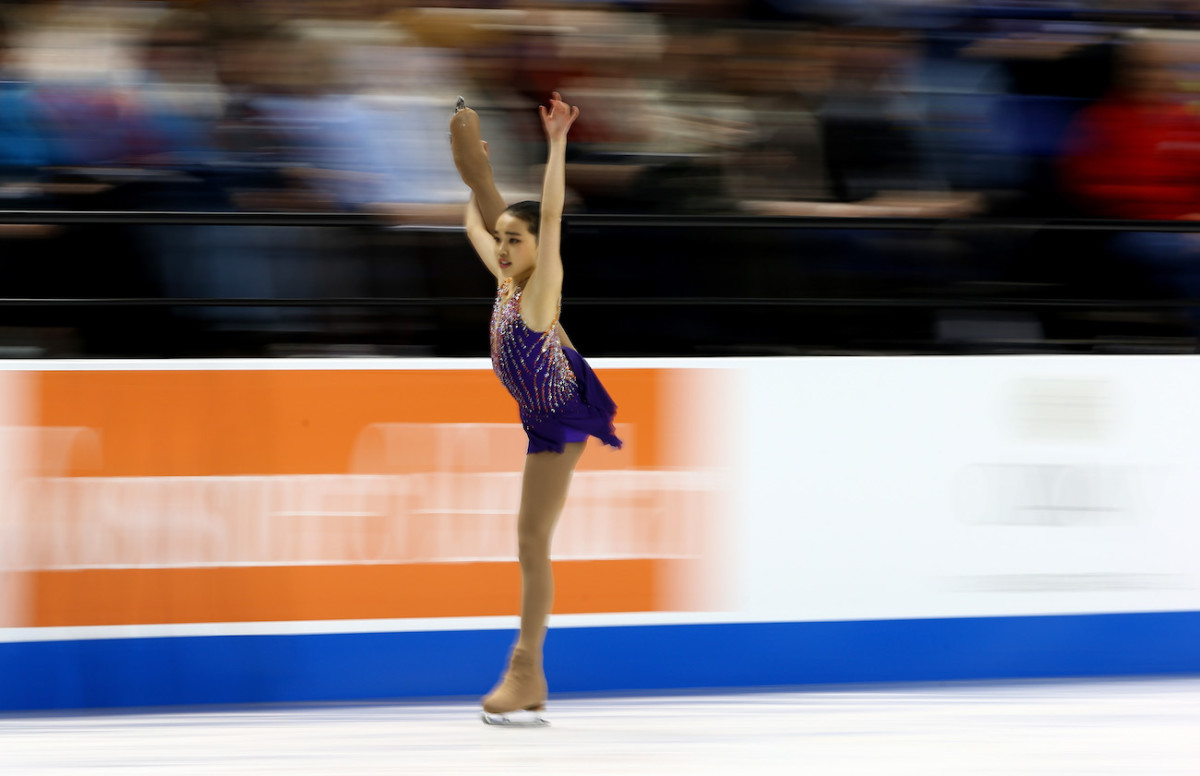Olympic Figure Skater Karen Chen Tells Her Story


Figure skater Karen Chen is preparing to make a name for herself at the 2018 Winter Olympics. Chen was the ’17 U.S. national champion and placed third at this year’s championships. She has impressed many people with her technical skills and composure on the ice. And now, she is an author too!
Recently, Karen wrote an autobiography titled Finding the Edge with collaborator Natalie England. Chen takes us behind the scenes—from when she fell in love with the sport as a little girl to how she faces challenges and triumphs on and off the ice. As she battled major injuries and adjusted to coaching changes, Chen found a way to persist and compete at the highest level.
Readers will appreciate the passion, dedication, and sacrifice required of Chen to become a world-class athlete. I spoke with Chen about her book and her hopes for the Olympics!
What inspired you to write your autobiography?
It was a great opportunity that was brought to my attention. It was definitely a challenge because I’ve never done anything like this before. I’ve always done things on ice—skating’s my thing. But I decided to take the time during the summer to write this book. I felt that putting my story onto paper could help inspire and motivate young skaters and young athletes.
How does skating make you feel when you’re on the ice?
Skating has always been something very special to me and something that I loved. I was always an extremely shy kid growing up. For me, trying new things was always very challenging and difficult. But when I stepped on the ice, all of the shyness kind of just left my body, and I felt like I was really enjoying myself. I didn’t care what other people thought about me. It was just so much fun, and I fell in love with the sport. I was willing to do it every single day and make some sacrifices here and there. It made me feel very strong and powerful, and it’s something that I really enjoy.
You share openly about the challenges you’ve faced off the ice—major injuries, coaching changes, and such. What are the most valuable life lessons you gained from those experiences?
I think a lot of it was really figuring out why I’m willing to keep going and keep trying no matter how hard things got. I seriously went through a lot of injuries, and those injuries were tough. With some of them, I had to take months away from the ice. And it was a huge struggle for me. But I didn’t want to be a quitter, and I wasn’t a quitter. I always want to keep trying. And even if things did get really difficult, I want to win. And I want to beat those obstacles, and make sure that I come out on top, and just keep fighting no matter what I’m dealing with.

Kristi Yamaguchi—U.S., world, and Olympic champion—wrote the foreword for your book. Describe your relationship and what you’ve learned from her through the years.
Kristi Yamaguchi is an amazing person. I’m so thankful to have her. I think the root of it is that we both grew up in Freemont. So that was an instant connection right away. Over the years, she’s really been my role model and mentor. Not just because she’s an amazing skater and an Olympic champion, but she’s a very generous and giving person. And she’s always super, super nice and kind. And that’s something that I aspire to be like.
In your book, you mention that she’s given you the advice to “skate dumb.” What does that mean to you, and how can that advice translate to athletes in other sports?
I think it’s something very generic, but I feel like it does work. At first when she told me about it, I guess I was a little bit shocked. It kind of came out of nowhere. Because for me, when I’m skating and doing things, I’ll allow myself to think certain thoughts to kind of help me with my technique or help me focus. But when she said that, it hit me that I’ve trained my body to do this over and over again every single day. And my body knows what to do. So it’s kind of letting muscle-memory take over and not have any doubts running through my head. That really helps me stay in the moment.
Readers may be surprised to hear you describe yourself as “very shy.” What are some other things people may be surprised to find out about you?
Yeah, I do get that a lot, that people are surprised I was shy. I’m definitely better now. But I still feel like that shy girl every now and then. Skating has really helped me come out of my shell. But I guess if people were to be surprised…I like doing art sometimes. I used to do it all the time, just random little doodles. I used to go to an art class and do really fun things. But I got really busy, and I don’t really have time for that anymore.
You must be very proud to represent the U.S. in the Olympics. But you also devote a chapter to the lush “green” of Taiwan. What are some of the greatest blessings and values that each culture has given you?
I think that it’s just realizing that I’m Taiwanese-American. That my parents are from Taiwan, and just embracing that, and embracing who I am. Yeah, I’m American too. I was born here, I was raised here, and this is my home. But I also remember that I grew up spending a lot of my childhood in Taiwan with my grandparents. So I was able to experience it both, which I’m extremely grateful for.

In your book, you mention that you write notes to yourself to stay motivated. What have you written lately to motivate you as you prepare for the Olympics?
Sometimes I would pick a piece of paper and write down a note or something that I feel will really motivate and inspire myself everyday. I’ll stick them on the wall and around the house. Things like, “Never give up,” or “The sacrifices are worth it,” or “You are strong. You can do it. You are fierce. You’re going to skate really well.” Just little positive notes here and there that put me in a really good mood for training.
You end your book saying that you’re not done writing your story yet. What can we expect to see from you in the future?
Yeah, I kind of left it on that note. I finished it during the summer, so I didn’t know whether or not I was going to make the team. Now that I’ve made it, it shows that my story is only starting. Maybe I’ll continue. Whatever my path is going to be in the future—whether I’m going to keep skating and going for another Olympics—even I don’t know exactly what’s in store for me in the future. But I think the bottom line is that, as long as I love what I’m doing, whatever it may be, I’ll find a way to make it work. And that in itself is a really cool story.
This interview has been edited for length and clarity.
Photographs: Courtesy of HarperCollins (cover); Matthew Stockman/Getty Images (black costume, white costume); Streeter Lecka/Getty Images (purple costume)
